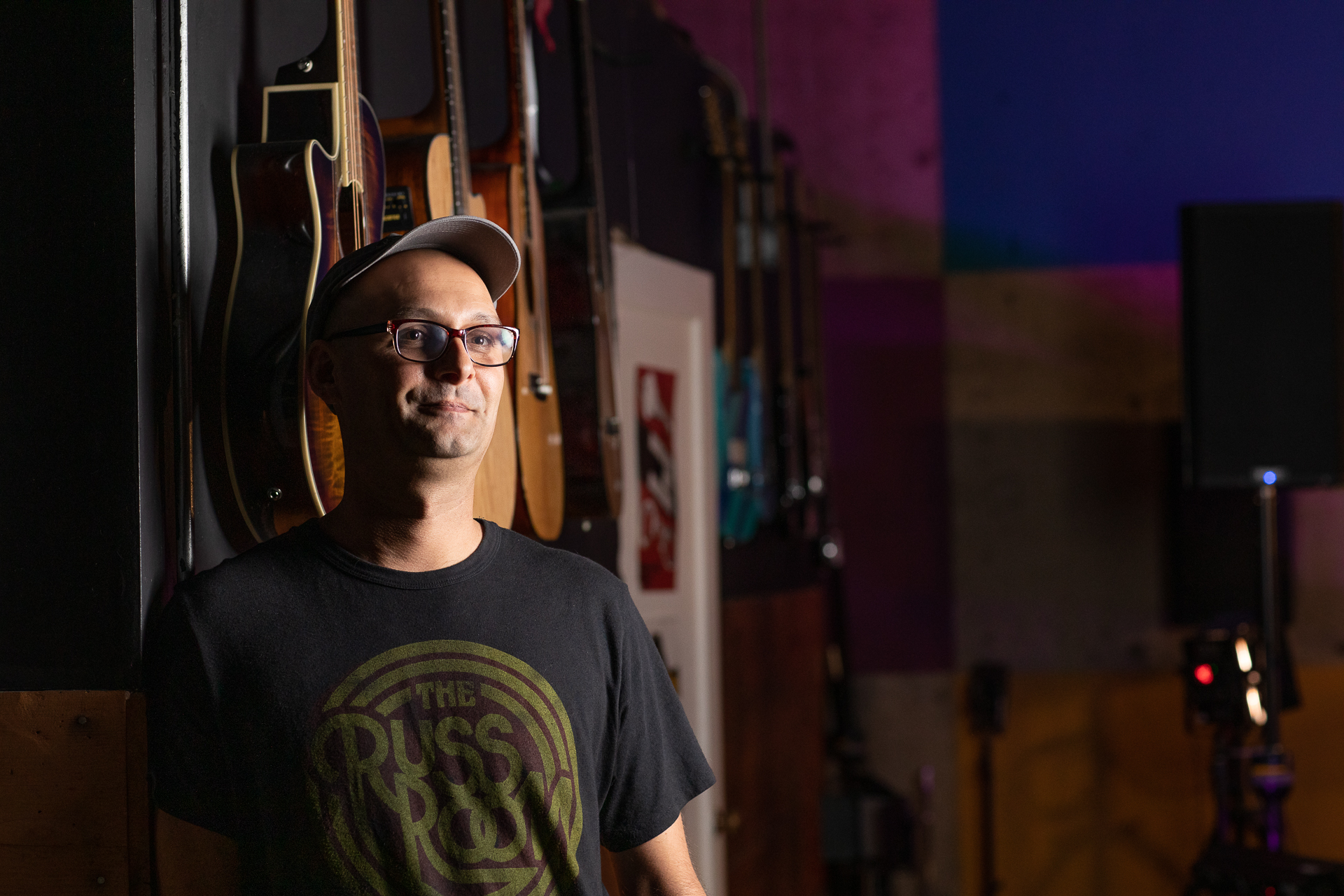Story Content
Founder of innovative music lending library used ‘every single class’ at Sac State to realize his vision
May 06, 2022
Buddy Hale ’17 (Entrepreneurship) started small – just 25 instruments in a tiny apartment in Sacramento – but his idea was big: Create a lending library where anyone could borrow musical instruments or equipment for as long as they needed.
Hale has channeled his lifelong love of music and desire to make music accessible to everyone into The Library of MusicLandria. Billed as the largest musical lending library in the country, it boasts more than 2,000 items to loan and community space for classes, performances, or recording.
It wouldn’t have happened without Sacramento State, Hale said.

“The timing was spot on,” he said. “I get into Sac State, and I thought, ‘How can I really make good use of my time here? What can I do to make it so, by the time I'm done with my degree, I've got something solid?’ ”
Hale’s childhood was difficult. When he was just 8 months old, his mother left him with his father, who was in his 60s and had Alzheimer’s disease. Hale entered the foster care system, eventually became an emancipated youth, and struggled with isolation.
Unsure of his place in the world, music helped him find it.
“One of my earliest memories is banging on my desk as a 2-year-old or something like that,” Hale said. “Just this teeny little me banging on my desk thinking I'm creating the most epic drum solo ever.”
Drums were his entry point into music. By the time he was 8, Hale was writing his own songs. He eventually learned how to play other instruments and record, and he connected with other musicians.
“I slowly realized that making music or making songs or writing songs and recording, learning how to record, learning how to play an instrument, was sort of how I could express all that gnarly crap that I had to deal with growing up,” Hale said. “Music became like my therapy.”
He wondered, though, what might have happened if he had access to not just equipment but the music community sooner. That’s where he got the idea of for The Library of MusicLandria, which draws its name from the ancient Library of Alexandria and ultimately launched as a nonprofit in 2014. Hale serves as executive director and board chair.
About the same time, wanting to flex a different part of his brain, Hale enrolled in Sacramento State’s undergraduate business program with a fairly clear goal.
“Day one, I was like, I'm starting a nonprofit. I'm going to use every single class, every single homework assignment, to develop the foundation of this nonprofit for the business,” he said.
He followed through on his “every assignment” pledge. Develop a business plan? He made one for MusicLandria. Assignments related to marketing, human resources, and financial reports were put to the same purpose. Hale received advice from mentors such as George Paganelis, who curates Sac State’s Tsakopoulos Hellenic Collection and taught Hale about what it takes to run a library.

During his time on campus and after, MusicLandria grew exponentially, from the initial 25 instruments – Hale’s personal collection, which he donated along with his “life savings” of about $60 – to hundreds today. Much of the inventory is donated by people who, like Hale, want to make sure it is put to good use.
“Musical instruments are super expensive, and that's a big barrier for people,” Hale said.
MusicLandria offers items including guitars, ukuleles, drum kits, mixing boards, amps, and microphones. Anyone within 50 miles of Sacramento can check out as many as seven items for as long as they need. The library even has no-expiration “forever loans,” benefiting, for example, local school teachers who need instruments for their students every year.
MusicLandria is more than a lending library, however. It also is a practice space for people who need one, and an all-ages venue where local musicians can perform. It also recently became home to Sacramento Dirt Radio, an online radio station featuring exclusively local artists.
Once the lending program succeeded, Hale realized he needed to keep building, considering that a free instrument isn’t much use to someone who doesn’t know how to play it. So the library began offering educational programming, then provided space for musicians to gather and perform. Next came professional development support for musicians pursuing a professional career.
“It's basically a musician's hierarchy of needs, another thing that I would not have known about if I didn't go to Sac State,” Hale said. “That was definitely part of the education there.”
Similarly, music has a way of bringing the community together in cascading ways, he said. A single musician can learn to play an instrument and then team up with others to form a band. That band can bring people together at a concert. Multiple bands can join efforts to put on a festival, highlighting the artistic diversity for even wider audiences.
That effect can be especially important now, he added, as the region and world emerge from the COVID-19 pandemic.
“Everyone knows that there's potentially a lot of isolation right now, and music is a great way to bring people together,” Hale said. “I really think that community is important and that it's important to reduce isolation, to bring people together to build communities, and to share and learn from each other.”



